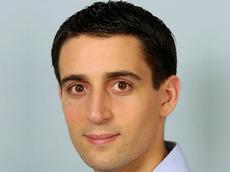Internationally-minded

Try finding your ground at ETH Zurich as a non-German speaker. Would you feel lucky that you ended up in a multi-linguistic environment, or would you rather feel completely lost because German is the dominant language, although the university claims to be international?
Coming from France, my foreign language skills were not in contradiction with the common stereotypes attributed to French people. But I managed to achieve proficiency in English and a few interviews later, I was offered a doctoral position at ETH. I figured, the internationality of the campus, although the majority of the students are native German speakers, made the position especially attractive. In addition to the research opportunities, I felt coming to ETH would give me the chance to improve my languages skills.
The reality, however, was slightly different. I had difficulties integrating, much less understanding what was going on around me. I wasn’t prepared for everything being in German. Although a lot has been improved since I started at ETH in September 2011, languages barriers still exist. Even basic things like cafeteria menus and a good portion of the ETH websites are still only available in German. But even more frustrating is the fact that most internal meetings and commission assemblies take place in German, greatly limiting foreigner participation and integration. In my opinion, it prevents the evolution of a common team spirit or a feeling of community at ETH, which in turn hinders the institution’s development of becoming a world-class university of science and technology.
In 2011, 65 per cent of the doctoral students at ETH were foreigners—half of them non-German speakers. The proportion of foreigners and non-German speakers has been increasing over the last decade, and at a faster rate than the total number of students. According to the budget report produced by the ETH Board, the headcount target at ETH Zurich is expected to increase to 20, 000 students by 2020. I wouldn’t be surprise if the total number of non-German speaking doctoral students included in this headcount were to rise as high as 50 per cent by 2020. With this in mind will ETH be able to remain competitive on an international and scientific level? I’m not directly referring to the daily working language, but rather more to the integration and recruiting of non-German speakers.
Indeed, ETH is a Swiss institution and German is the official national language in Zurich. Under the current teaching mechanism, a major proportion of doctoral students are expected to reach a level where they can teach or hold nearly all their internal meetings in German. Although improvements are currently being made to better integrate non-German speakers and help them learn the local language, achieving a level of proficiency to be able to teach is a long way off for most. If this is really the goal, the University should take a more active approach by incorporating it into the doctoral programme, for example, or offering financial support for language courses.
The real question is: should ETH keep German as a prerequisite when the scientific world is dominated by English as a lingua franca? Of course, there’s no easy answer to this question. But in the long run, if English were widely accepted at ETH as the official lingua franca half of the doctoral students, who currently feel excluded, will have a better chance of integrating. For most of us, English is already a foreign language and we are constantly trying to improve and perfect it through courses and training. So, wouldn’t a more intensive daily use of English be an automatic way of improvement? It would then seem more realistic to take up German courses in addition.
It is clear that nowadays even a doctorate degree needs to be enhanced and complimented by other capabilities; language skills are especially in demand. And I certainly agree that the process of learning a foreign language, in this case German, would be a fruitful experience from a cultural point of view. But considering the given situation, ETH needs to get better at emphasizing integration; even more than just simply encouraging people to broaden their language skills. In fact, this could be a unique selling-point for ETH, a characteristic that would set it apart from peer universities. Introducing a language and cultural integration programme that coincides with the existing curriculum has the potential to be very attractive to an ever more internationally-minded generation.
About the author
Florian Emaury obtained his Master of Science in physics in 2010 from the Institutd'Optique Paris Tech (IOGS) near Paris. After one year of working abroad in California, USA, he joined the Ultrafast Laser Physics Group headed by Professor Ursula Keller at the Institute for Quantum Electronics at ETH, where he is currently working on laser developments. Within the framework of AVETH Florian has been leading the Politics Working Group (PoWoG) since February 2012, whereby he is actively engaged in addressing the issue of foreigner integration at ETH.
- 31.07.13: Column Emaury: I feel integrated!
- 24.07.13: Column Emaury: Which sites are German only?








READER COMMENTS